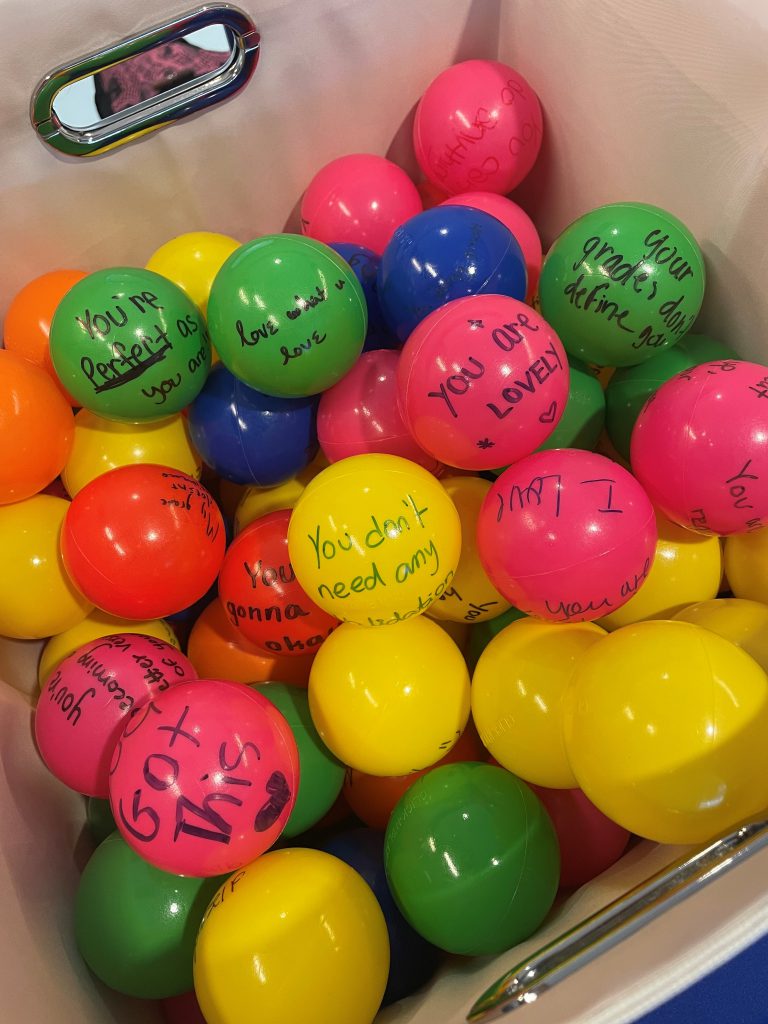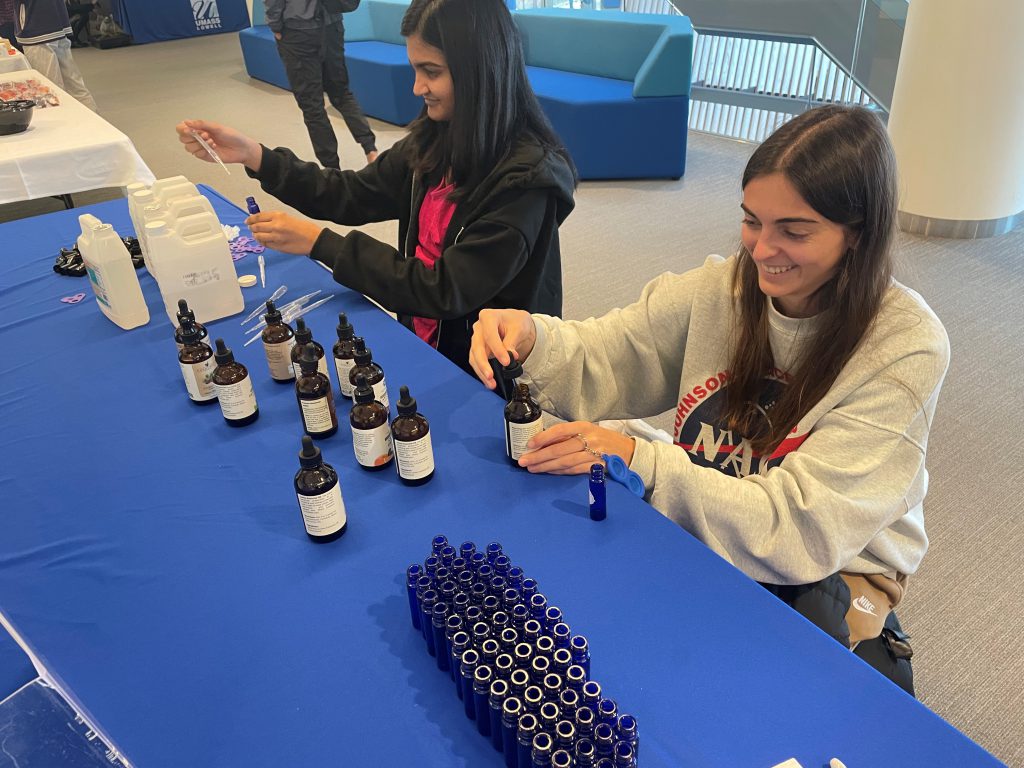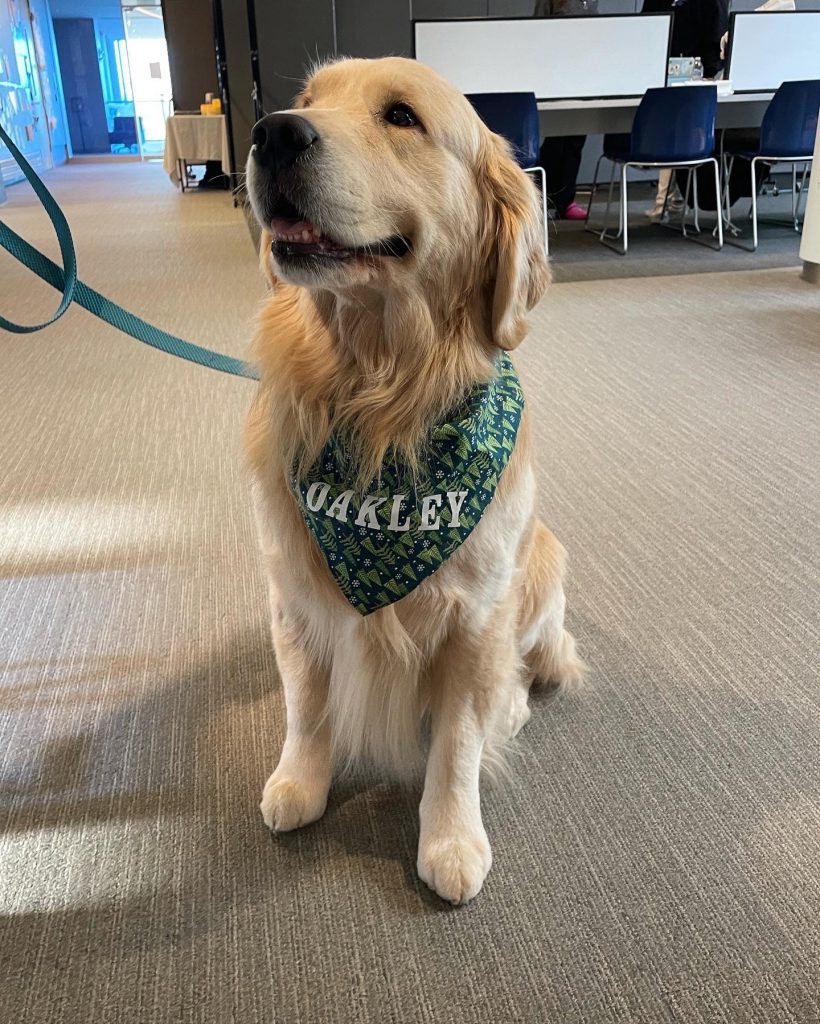By: Julia Yeadon, College of Fine Arts Humanities and Social Sciences Well-being Leader
Imagine this: your palms are sweating, your heart racing, your chest tightening, throat closing, fighting for a breath of air – This is the experience of many individuals struggling with anxiety that deeply impacts their quality of life. When asked what anxiety is by someone who has not lived with it, I struggle to fully capture its daunting and exhausting qualities with a simple definition. It feels different each day. Some days are easy to manage and other days feel impossible to get through. Some days it feels like constant worrying and tension. Other days feel so intense with fear that it is inescapable. Some days a multitude of triggers stack on top of one another until everything comes crumbling down. Other days the worrying and fear have no clear reason.
I have struggled with anxiety since elementary school. I remember the constant stomach aches and intense feeling of worry that kept me up every night. I remember experiencing sudden rushes of anxiety when leaving the house and when a test was placed in front of me at school. I remember avoiding the people and things I loved because I thought it would prevent an anxiety attack. I still experience most of this today.
For many years, I accepted that life would always be difficult with anxiety. I accepted that sometimes I would need to cancel plans to avoid social situations and hide at home where I felt most comfortable. I accepted not going to the mall, not going to that birthday party, not going to that concert, not living my life as I should have been all along. For those in the same place I was years ago, I want to tell you that life can be just as beautiful with anxiety, but it takes some work and consistency. Oftentimes, this may mean therapy, medication, or both, but there are also a number of self-help tools that can limit the symptoms as well. I would like to share some of those that I have learned over the past few years (many of which I discovered in college):
- Avoid caffeine and alcohol.
I love my morning coffee, but I notice that days where I have more than one coffee or consume other caffeinated beverages often increases my anxiety. You don’t need to completely cut coffee out of your diet, but consider the amount of caffeine you are consuming and decaffeinated options during more difficult days. In addition, days where I am experiencing more intense levels of anxiety are often worsened by consumption of alcohol. Try eliminating or decreasing caffeine and alcohol intake to see how this can affect your anxiety.
- Try meditation and breathing exercises.
During the start of college, I experienced a spike in my anxiety. I was having anxiety attacks more often and struggled to control them. I struggled to sleep as worries rushed through my mind the second my head hit the pillow each night. I was desperate to find anything that helped. I remember searching online for ways to ease an anxiety attack and I found meditation videos on YouTube. Thus, I began listening to short videos before bed and whenever I began to feel symptoms of an anxiety attack arise. I also found breathing techniques during my search, suggesting the 3-3-3 technique, in which you breathe in for 3 seconds, hold for 3 seconds, and release for 3 seconds. I recently tried yoga (which includes components of both meditation and breathing exercises) and have seen significant improvement. The thought of this sounded silly and useless at first, but I found that I can control my thoughts and my breathing.
- Stay active in your mind and body.
During my sophomore year of college, I began consistently weightlifting at the gym and felt immediate relief from anxiety. Physical exercise can look many different ways – running, going for walks, riding a bike, swimming, dancing, basketball, pilates, or yoga. Whatever way (or ways) you enjoy most, try to do it daily. Staying active physically decreases tension, relieves stress, and releases endorphins that enhance your mood. In addition, it is important to allow your mind to be active. Many individuals try to cope with their anxiety by pushing away worrying thoughts, and while distracting yourself can help temporarily, many of these thoughts return later on. Instead, try writing down these thoughts. After writing them down on a piece of paper, crumple it, tear it up, or burn it (safely, of course) to help yourself let go of these worries.
- Use the ice trick.
When I first started college, all I knew about easing anxiety attacks was to focus on breathing until one of my roommates shared a trick with me as she noticed me experiencing an anxiety attack one day. She took two ice packs from the freezer and held one to my ankle and the other to the back of my neck. Within seconds, the anxiety attack had passed. I asked her how it worked and she explained that the brain shifts focus between the two separate areas of the body, distracting the mind from the feeling of panic. This trick has yet to fail me.
- Don’t let yourself hide.
I have struggled with this for as long as I can remember, and, unfortunately, I sometimes still succumb to the idea of comfort through being alone in my own space. I often feel that when I am anxious, being in social settings will be too overstimulating, and, even worse, I fear experiencing an anxiety attack in public with nowhere to hide. But, I began forcing myself to attend those plans I had with my friends and I soon realized that surrounding myself with those who I love actually eases my anxiety. I also found that many of my friends live with anxiety too and could share what helps them. It saddens me to realize how much I have missed out on throughout the years due to my anxiety. Some days, I still choose to cancel plans and stay at home, but I try my best to allow the thought of missing out on making memories with loved ones to push myself to follow through with plans.
If there is one thing you take from this, please know that your anxiety does not have to control you. You have the power to live a happy and fulfilling life despite the challenges that come with anxiety. While the suggestions above derive from my personal experiences, there are many other individuals eager to help. Please view a list of on-campus resources below to help you gain control of your anxiety:
- Counseling Services: to provide short-term, clinical therapy.
- Disability Services: to offer accommodations to those with a medical diagnosis.
- Well-being Leaders: to work on healthy habits, such as the ones mentioned above, set goals, and serve as a listening ear.


